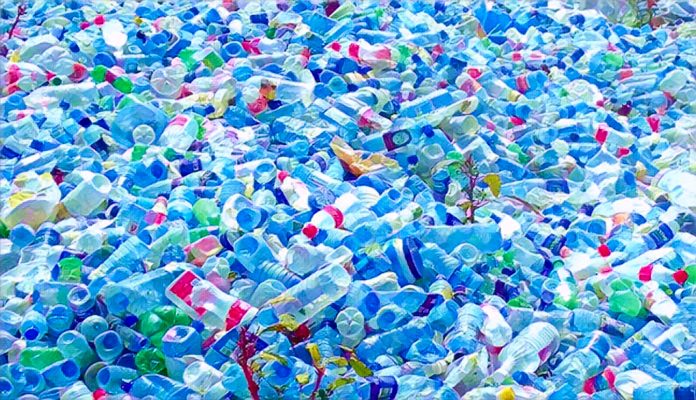KEY POINTS
-
Plastic harvesting in the Lagos Lagoon provides vital economic opportunities for many informal recyclers while addressing plastic waste in the city’s waterways.
-
Despite the economic benefits, the practice highlights the ongoing environmental degradation caused by plastic pollution in the lagoon.
-
Long-term solutions to Lagos’s plastic pollution problem will require improved waste management systems, public education, and a shift towards more sustainable waste disposal practices.
The Lagos Lagoon, a vital waterway running through the heart of Nigeria’s commercial capital, Lagos, has long been a destination for plastic waste.
From water bottles to bags, discarded plastic finds its way into the lagoon, contributing to an escalating environmental crisis. Yet, amidst the growing tide of marine pollution, a surprising industry has emerged: plastic harvesting.
Entrepreneurs and local recyclers are capitalizing on the waste in the lagoon, transforming what many consider a detrimental byproduct into a profitable resource.
Lagos, home to over 20 million people, is one of the largest urban areas in Africa and is plagued by severe waste management issues.
Due to their widespread use and non-biodegradable nature, have become one of the most persistent pollutants in both urban areas and marine environments.
As the city grapples with the effects of plastic waste, the lagoon has become a key focal point in the struggle to balance environmental preservation with economic survival.
Plastic harvesters: A booming industry amid pollution
Plastic harvesting in Lagos is a thriving industry, with many of its workers being informal recyclers who collect waste from the lagoon. These individuals, often from low-income communities, navigate the murky waters, sifting through debris to extract plastic bottles, bags, and other recyclable materials.
The plastic is then transported to various recycling centers, where it is sorted, cleaned, and processed into reusable material for various industries, including construction, textiles, and packaging.
The process is labor-intensive and requires specialized skills and equipment, particularly for those harvesting plastic from the water. For many, this daily grind offers one of the few ways to earn a living, especially in the face of high unemployment rates in Lagos.
The price of plastic collected from the lagoon can vary depending on the type of material and its condition. Clean, recyclable plastics fetch a higher price, and the demand for plastic waste is growing as more recycling centers are established.
Recyclers play a crucial role in the circular economy by ensuring that waste is repurposed into usable materials rather than being dumped into landfills or oceans. However, the environmental cost of collecting this waste is undeniable. The lagoon’s waters are increasingly clogged with plastic, creating significant ecological concerns.
The environmental trade-Off: Profit vs pollution
While harvesters benefit financially from their work, the pollution in the Lagos Lagoon continues to pose a significant environmental threat.
The overabundance of plastic waste in the lagoon is not just a nuisance—it’s a direct threat to marine life. Fish, birds, and other aquatic species mistake plastic debris for food, often leading to ingestion and death.
In addition, the lagoon serves as a breeding ground for mosquitoes, whose larvae thrive in stagnant waters filled with waste. This increases the risk of diseases like malaria and cholera, which disproportionately affect the vulnerable populations living in surrounding communities.
Despite these challenges, plastic harvesting offers critical income for thousands of people. The growing awareness of the environmental impact of waste has led to calls for more sustainable solutions, but many argue that the plastic recycling industry in Lagos is a necessary stopgap.
Recyclers insist that without proper waste management infrastructure, waste will continue to flow into the lagoon, and their work remains essential. Government initiatives focused on improving waste management practices and promoting recycling programs have been slow to take off, and many recyclers believe they will continue to fill the void.
What needs to be done
To address both the economic and environmental concerns, experts suggest that better waste management systems, public awareness campaigns, and infrastructure improvements are essential.
Governments and non-governmental organizations (NGOs) have called for investment in clean-up programs that both protect marine life and provide sustainable livelihoods for the workers involved in the recycling sector.
While plastic harvesting provides economic opportunities for many, experts agree that a long-term solution lies in reducing waste at the source. Effective waste management, community-driven recycling initiatives, and a shift towards sustainable alternatives are vital to addressing the ongoing problem.



